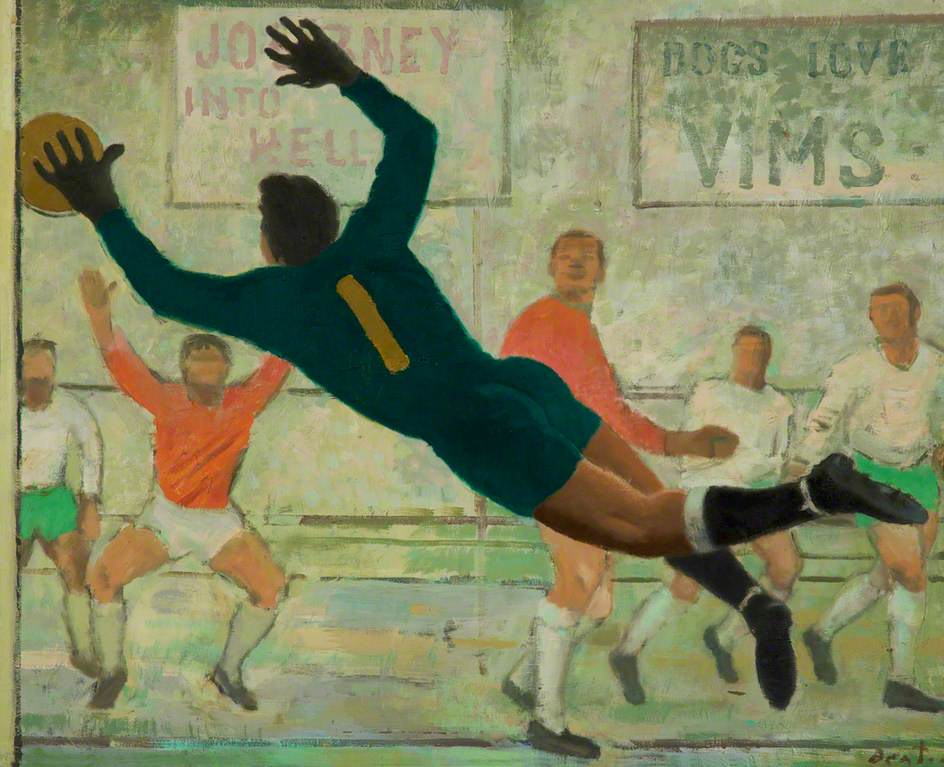Football a la Mode

England, in the 2021 Euros championship, went all the way to the final driven by huge support, dare I say nationalist in spirit. The team manager, Gareth Southgate, had gone so far as to invoke ‘the warrior spirit of generations past,’ an odd appeal in a country long given to extinguishing memories of its warrior past. Some that past was tainted by its association with imperialism, the warrior spirit having been employed in subduing native peoples. Southgate also drew on memories of WW2, for which he was justly rebuked by Der Spiegel. The match was distinguished by the Commedia del’Arte behaviours of the Italians who went through their gallery of attitudes of shock and outrage, while the England players were lucky to escape with their shirts, owing to the Italian passion for pulling them off. Still, the match ended in a 1-1 draw. Then came the penalty shootouts, and trouble.
The choice of penalty takers was entirely up to the team manager, Gareth Southgate, who chose two white and three black players. The two whites scored, the three blacks all missed. Of the three, Marcus Rashford, known for his anti-racist evangelism, had solid form as an accomplished penalty expert. The other two were the most inexperienced in the team: Jadon Sancho had scored one, Bukayo Saka, aged 19, had never taken a penalty. At the end he buried his head in the face and bosom of Southgate, a Pieta for our time that featured on the front page of the Telegraph (12 July). No blame was attached to the penalty strikers, who did their best under pressure that was evidently too much for them. The inquest focused on Southgate. Why, it was asked, was the crucial penalty given to a teenager with no experience at that level? It appeared that no special training had been given. It would have been wise for Southgate to enlist Alan Shearer—far and away the most successful penalty taker of his day—to give Oxbridge-type tutorials to each of the players the manager had in mind. Instead, Southgate cast himself as the General Melchett of the team, sending in a subaltern for a doomed attack.
Why did Southgate make the decisions he did? No real answer came from the official sources. The reasons are easily guessed. Southgate wanted England to triumph through a trio of accomplished and nerveless black players, whose success would seal his country’s reputation as a home to diversity and anti-racism. It would be a glorious affirmation of English values. His own reward would follow swiftly: an invitation to Buckingham Palace, with an honour from the hands of the sovereign. Sweet are the uses of diversity.
But the event turned out differently. The choice of penalty takers came over as a coarse attempt to glorify the black players, at the expense as it turned out of the team and the larger community. A splendid prize, which the nation yearned for, had been entrusted to three heroically incompetent black players. This unwelcome truth was suppressed in the official media reaction. No criticism of Southgate, who was thought to have created an imposing team spirit, was permitted even after the disastrous decisions for which he took full responsibility. The BBC reporter at once put a positive spin on the team failure: the England team was ‘more representative’ than some teams of the past. Having several black players (but no Asians), by bending the knee and ‘fighting racial inequality’ they symbolized a diverse, multicultural society—as opposed to the England of old—but were no more capable than the all-white teams of the past in taking penalties. Virtue does not in itself guarantee victory. The cool and measured John Redwood confined himself to this: ‘The manager’s choice of specialist penalty takers backfired badly and cost them a victory.’ Pravda, the Daily Telegraph, at once backed the official narrative. Its letters pages avoided all reference to the dread topic of ethnic responsibility for the national fiasco. Discussion of the match was closed down after a day or two even in the sports pages. Instead, the social media were violently attacked for their derisive and racist comments on the performance of the three black penalty takers. All criticism of the manager was deflected to Twitter, Facebook, and Instagram, whose postings could not be judged because they were speedily removed. The subsequent outcome suggested something other than team solidarity, for two blacks went on holiday together to the Turks and Caicos, while a cohort of whites headed for Mykonos. There they made trouble in the time-honoured English way by belting out in a crowded restaurant the England theme song ‘Sweet Caroline’, thus causing the authorities to ban music and singing in bars on the island.
Boris Johnson has vowed that the Government will take steps to identify and punish the media racists. I do not think he will succeed. The social media are the cloaca maxima of the body politic: Tarquinius Superbus, the last king of Rome, had the city’s open canal built over under which their impurities were flushed into the Tiber and the sea. The main sewer was always there, whether covered or not. That remains true whatever the legal status of the covering, and the public awareness of its meaning and value. The social function of the media cloaca is indispensible, and there is no substitute other than the samizdat. If Boris Johnson succeeds, the last bastion of free speech, the social media, will have fallen. There is no First Amendment in Britain.